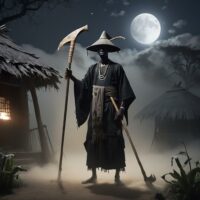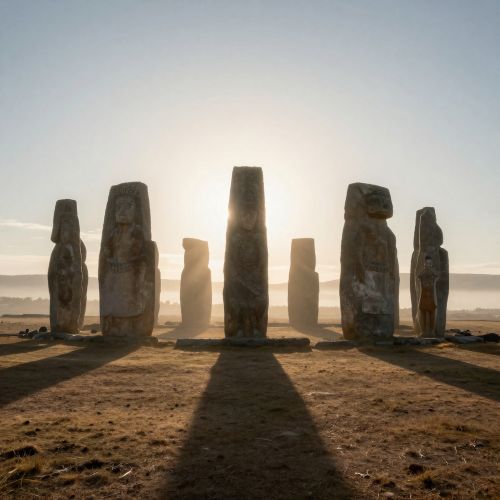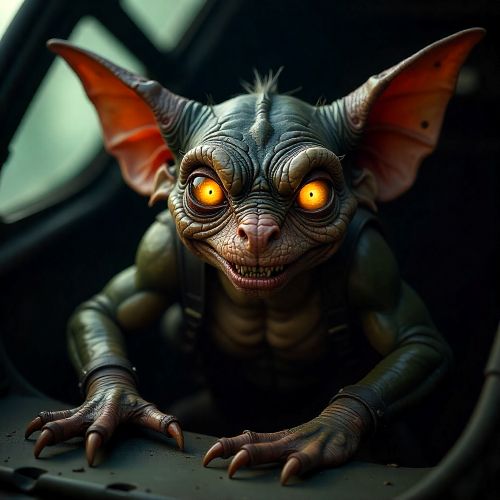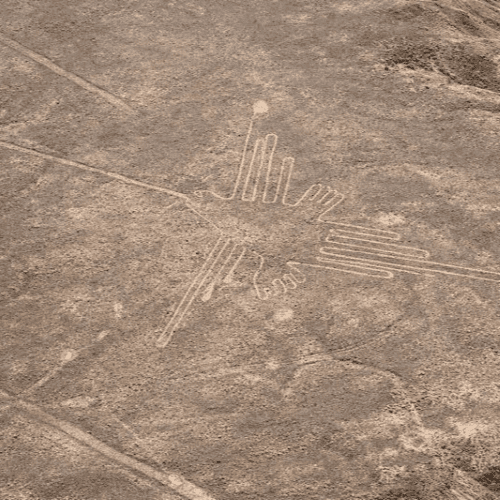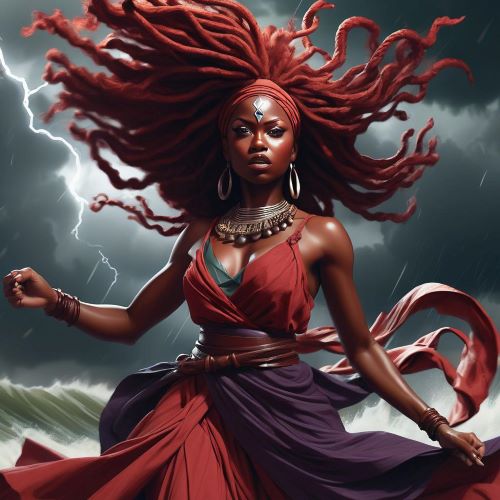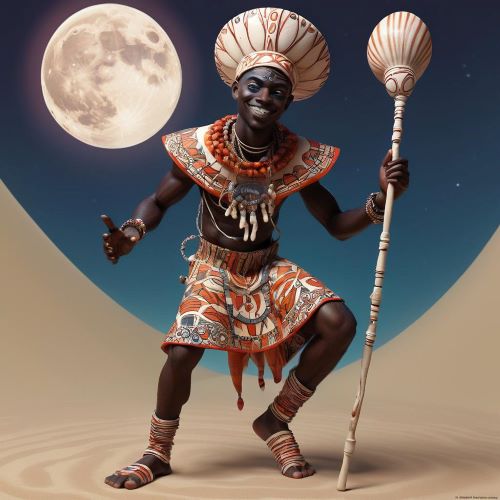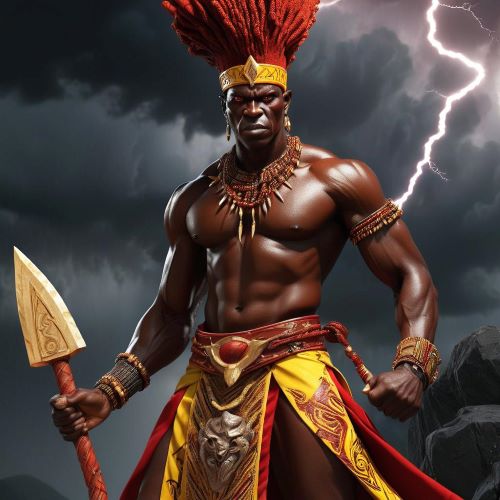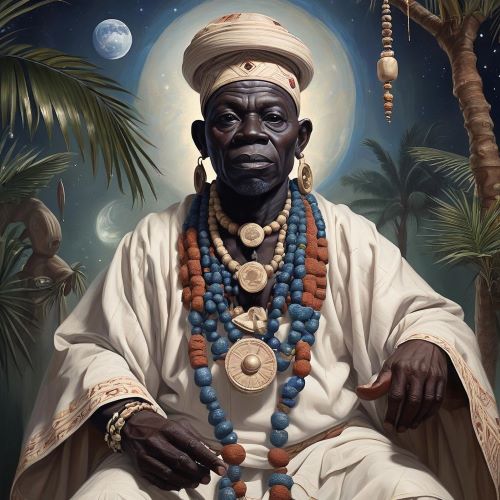Iku : God of Death
Listen
At a glance
| Description | |
|---|---|
| Origin | Yoruba Mythology |
| Classification | Gods |
| Family Members | Arun, Tau and Avuvo (Children) |
| Region | Nigeria |
| Associated With | Death, Evil Spirits |
Iku
Introduction
In Yoruba mythology, Iku represents more than just the end of life—Iku is the divine embodiment of death itself. Unlike the fearsome or villainous portrayals of death found in many Western traditions, Iku is seen as a necessary and impartial cosmic force. It is neither worshipped nor villainized but deeply respected for its critical role in maintaining the universal balance. Iku works on behalf of Olodumare, the Supreme Being, ensuring that the passage from the earthly world to the spiritual realm unfolds as ordained. As a core figure in Yoruba spiritual thought, Iku is ever-present, influencing traditional rituals and belief systems, and continuing to shape Afro-Caribbean religions like Santería and Candomblé today.
Physical Traits
Iku’s appearance is deeply symbolic. While commonly visualized as a skeletal figure cloaked in black—similar to the Western Grim Reaper—this is more metaphor than literal image. In Yoruba cosmology, Iku is a shape-shifter. It may arrive quietly through a crack in a wall or an open window, slipping through the smallest gap to fulfill its task. Iku does not require grand entrances; its presence is often only recognized by the absence it leaves behind. In some artistic traditions, it’s depicted as a tall, dark-clothed human with flowing hair, sometimes residing in a mystical underwater palace. These representations remind believers that death is both mysterious and inevitable. Tools like the “Staff of Death” (Opa Iku), carved from wood, are symbols of this silent yet powerful transition.
Family
Though not always described in direct familial terms, Iku is associated with forces that accompany and herald death. Yoruba stories tell of Iku’s fall from grace after a failed confrontation with Orunmila, the Orisha of wisdom. Once an Orisha, Iku was demoted and made leader of the Ajogún, a class of malevolent or chaotic spiritual forces. Among these are said to be Iku’s “children”—disease (Arun), fever (Avuvo), and headache or general malaise (Tau). These beings often precede Iku, softening the body before death’s arrival. This connection between illness and death illustrates how Yoruba cosmology sees health, life, and the afterlife as interconnected paths within a single spiritual journey.
Other names
In Yoruba, “Iku” simply means “death,” but the term carries far more than its literal meaning. It is used in proverbs, songs, and rituals to invoke reflection on mortality and moral responsibility. One of the most telling expressions is Iku ya j’esin, meaning “death is preferable to dishonor,” which reflects the cultural emphasis on dignity even in dying. In Afro-Caribbean communities, particularly within Santería, Iku is acknowledged by different names or metaphorical titles. Spanish-speaking practitioners may refer to it as La Muerte, blending African and local beliefs into a uniquely syncretic understanding. Regardless of the name, Iku is recognized as an unstoppable, non-negotiable force.
Powers and Abilities
Iku’s abilities transcend the physical. Its role is not to punish or reward, but to escort. Its main task is soul collection—guiding departed spirits from the earthly plane to the spiritual domain for judgment by Olodumare. Iku can appear at any time and place, unaffected by barriers of time or geography. This omnipresence emphasizes the belief that death cannot be escaped. Legends speak of Iku’s invisibility and ability to pass through walls or sealed doors. Some traditions even suggest it can appear in dreams as a warning or sign. In creative retellings—such as modern mythology series or fantasy literature—Iku has been reimagined with mystical enhancements like telepathy, illusion, and even the ability to control winds or command spiritual armies. But at its core, Iku’s power lies in its inevitability: all must answer its call, regardless of status, virtue, or strength.
Modern Day Influence
Iku’s reach continues in today’s cultural, spiritual, and artistic expressions. In the Yoruba diaspora, especially in Cuba and Brazil, Iku is acknowledged in rites involving ancestor worship (Egungun) and protective rituals. While not worshipped directly, Iku is given symbolic respect, and objects like the Orula necklace—worn by followers of Orunmila—are believed to delay Iku’s arrival until the right time.
In modern literature and film, Iku features prominently as a symbol of transition. Wole Soyinka, the Nobel Prize-winning Nigerian playwright, draws from Yoruba cosmology in works like The Road and A Dance of the Forests, where Iku represents both personal reckoning and societal critique. His use of Iku illustrates deeper philosophical discussions around fate, identity, and the legacy of colonialism.
Even contemporary films like Guantanamera by Tomás Gutiérrez Alea incorporate Iku as a cultural metaphor, using it to explore the Cuban experience, mortality, and ancestral identity. These examples show that Iku is not just a figure of folklore, but a vital symbol in post-colonial discourse, Afro-spiritual resurgence, and artistic reflection.
The proverb Iku ya j’esin still resonates today, especially in communities that value honor and collective memory. In contrast to modern individualistic cultures that often avoid discussions of death, Yoruba traditions—through Iku—embrace it as a guide and teacher, not a curse. This philosophical acceptance has even inspired modern thinkers and spiritual leaders to reevaluate how death is understood, honored, and prepared for.
Related Images
Source
Ashe pa mi Cuba. (n.d.). Who is Iku? Yoruba death. Retrieved from https://www.ashepamicuba.com/en/quien-es-iku-la-muerte-yoruba/
Ojo, E. O. (2017). Iku ya j’ẹsin: Invitation to Suicide in Yoruba Ontology. Journal of Research in Humanities and Social Science, 17(4). Retrieved from https://journalspress.com/LJRHSS_Volume17/306_Iku-ya-jesin-Invitation-to-Suicide-in-Yoruba-Ontology.pdf
Lawuyi, O. B., & Olupona, J. K. (1988). Metaphoric Associations and the Conception of Death: Analysis of a Yoruba World View. Journal of Religion in Africa, 18(1), 3–15. Retrieved from https://www.jstor.org/stable/1580833
The Ivoryverse Wiki. (n.d.). Iku. Retrieved from https://the-ivoryverse.fandom.com/wiki/Iku
Wikipedia. (n.d.). List of Yoruba deities. Retrieved from https://en.wikipedia.org/wiki/List_of_Yoruba_deities
Frequently Asked Questions
What is lorem Ipsum?
I am text block. Click edit button to change this text. Lorem ipsum dolor sit amet, consectetur adipiscing elit. Ut elit tellus, luctus nec ullamcorper mattis, pulvinar dapibus leo.
What is lorem Ipsum?
I am text block. Click edit button to change this text. Lorem ipsum dolor sit amet, consectetur adipiscing elit. Ut elit tellus, luctus nec ullamcorper mattis, pulvinar dapibus leo.
What is lorem Ipsum?
I am text block. Click edit button to change this text. Lorem ipsum dolor sit amet, consectetur adipiscing elit. Ut elit tellus, luctus nec ullamcorper mattis, pulvinar dapibus leo.
What is lorem Ipsum?
I am text block. Click edit button to change this text. Lorem ipsum dolor sit amet, consectetur adipiscing elit. Ut elit tellus, luctus nec ullamcorper mattis, pulvinar dapibus leo.
What is lorem Ipsum?
I am text block. Click edit button to change this text. Lorem ipsum dolor sit amet, consectetur adipiscing elit. Ut elit tellus, luctus nec ullamcorper mattis, pulvinar dapibus leo.


